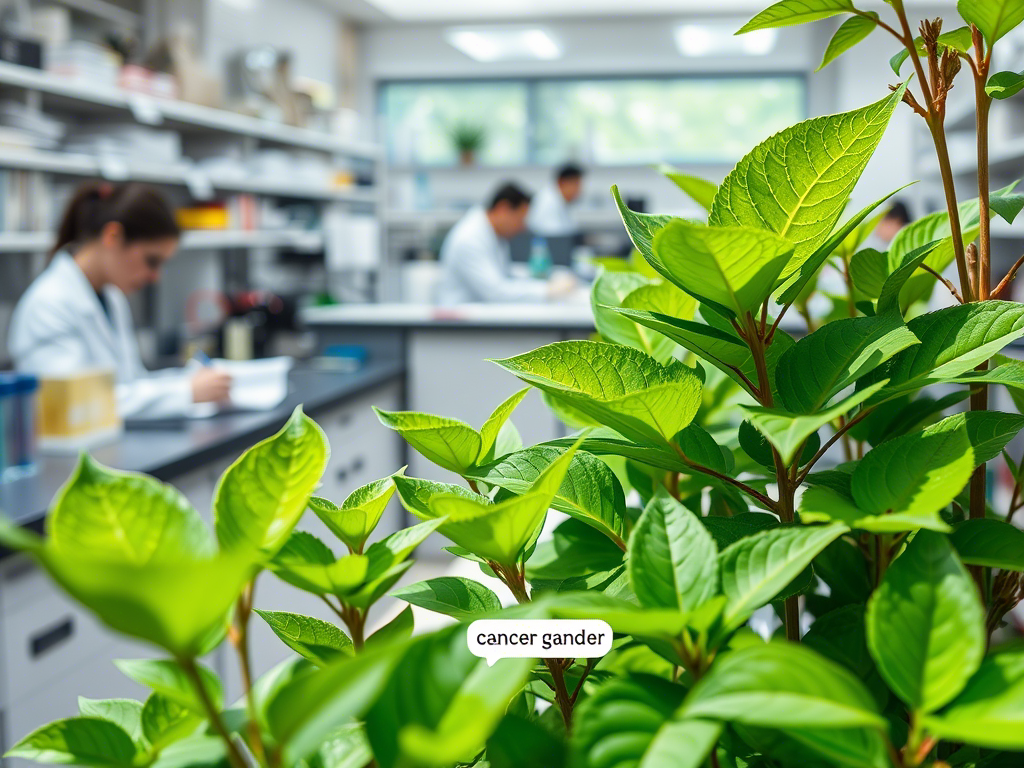These Plants Could Help Fight Cancer

These Plants Could Help Fight Cancer
Cancer remains one of the leading causes of death worldwide, and in Nigeria, both incidence and mortality rates are rising. Common types like breast, cervical, prostate, and liver cancers pose serious public health challenges.
While conventional treatments like chemotherapy and radiation are effective, they often come with harsh side effects. That’s why scientists are turning to nature — specifically, traditional Nigerian food plants — for safer, more accessible alternatives or complementary therapies.
A recent scientific review highlights several native plants that contain powerful bioactive compounds , such as flavonoids, alkaloids, phenolic acids, and terpenoids. These natural chemicals show strong potential to:
- Trigger cancer cell death (apoptosis )
- Stop cancer growth (cell cycle arrest )
- Reduce inflammation and oxidative stress
- Block blood supply to tumors (anti-angiogenesis )
Here are some of the most promising plants studied:
Top 9 Nigerian Plants With Anticancer Properties
-
Spondias mombin (Yellow Mombin)
Contains quercetin, which targets key pathways like PI3K/Akt and MAPK to stop cancer growth and reduce inflammation. - Xanthosoma sagittifolium (Arrowleaf Elephant’s Ear)
Effective against leukemia cells by inducing apoptosis and blocking angiogenesis. - Elaeis guineensis (Oil Palm)
Tocotrienols found in palm oil help kill breast cancer cells and stop their spread. - Irvingia gabonensis (African Mango)
Rich in gallotannins that regulate metabolism and boost immune response against cancer. - Allium cepa (Onion)
Organosulfur compounds and flavonoids help fight oxidative stress and reverse drug resistance in cancer cells. - Blighia sapida (Ackee)
Inhibits ERK5 signaling in breast cancer and protects DNA from damage. - Dioscorea dumetorum (Bush Yam)
Diosgenin in yams stops cancer cell growth and triggers programmed cell death. - Psidium guajava (Guava)
Leaf extracts rich in tannins and flavonoids prevent tumor growth and DNA damage. - Talinum triangulare (Waterleaf)
Quercetin-rich plant boosts immunity and fights oxidative stress linked to cancer.
How Do These Plants Work?
The anticancer effects happen through multiple biological pathways:
- Apoptosis : Activating “death signals” in cancer cells.
- Cell Cycle Arrest : Stopping uncontrolled cell division.
- Anti-Inflammation & Antioxidant Effects : Reducing chronic inflammation and cellular damage.
- Angiogenesis Inhibition : Cutting off blood supply needed for tumor growth.
Looking Ahead: From Lab to Real-World Use
While early results are encouraging, researchers emphasize the need for:
- Standardized extraction methods
- More clinical trials on humans
- Better understanding of how environmental factors affect plant chemistry
There’s also a growing call to combine traditional knowledge with modern science , creating a stronger foundation for future cancer therapies.
Conclusion
Indigenous Nigerian plants offer a promising source of natural anticancer agents. By integrating these bioactive-rich foods into treatment strategies, we could develop more affordable, accessible, and holistic approaches to fighting cancer — especially in regions where medical resources are limited.
As research continues, these plants may not only support current treatments but also inspire new drugs derived from nature’s own medicine cabinet.
🔍 Key Takeaways:
- Nigerian indigenous plants show real anticancer potential in lab studies.
- Bioactive compounds like quercetin, tocotrienols, and gallotannins target cancer through multiple pathways.
- These plants can complement conventional treatments and reduce side effects.
- More clinical studies and standardization are needed before widespread use.
- Traditional knowledge + modern science = exciting future in cancer care.





